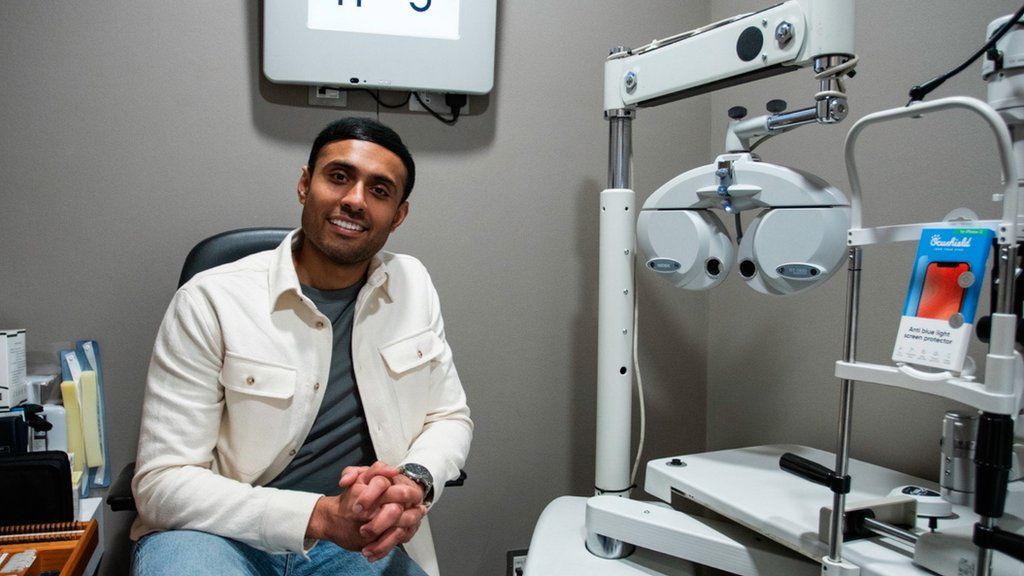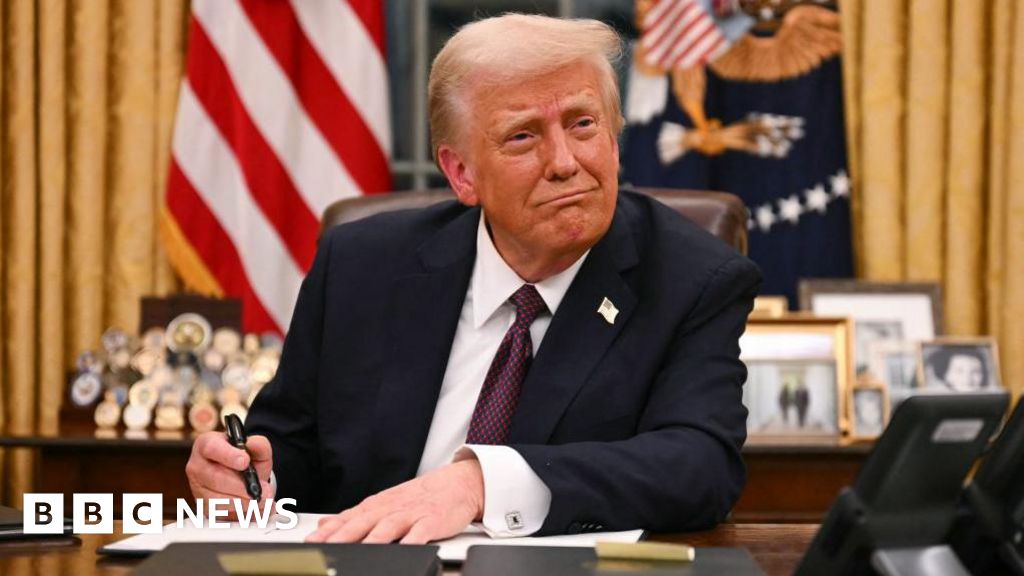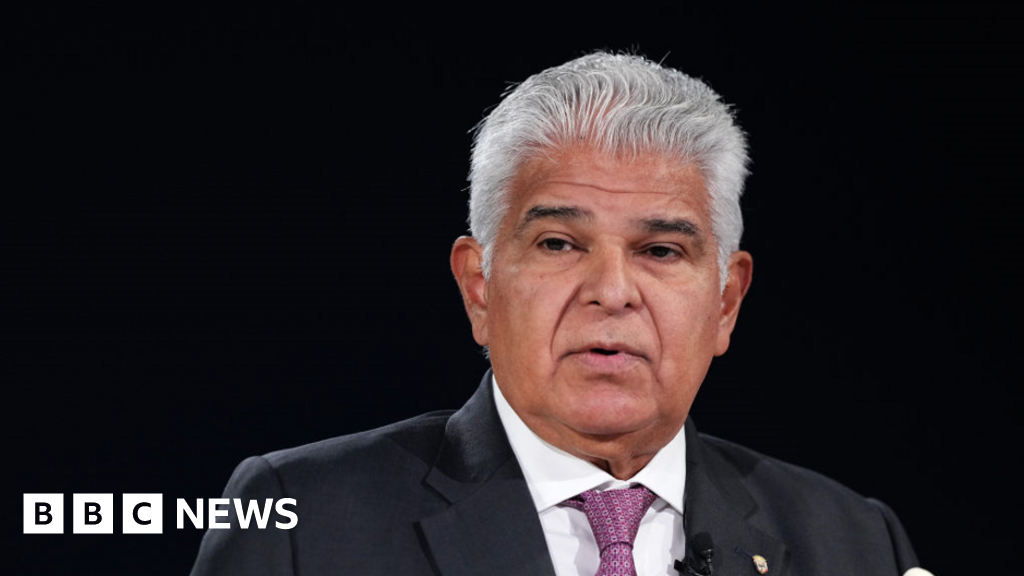ARTICLE AD BOX
 Image source, Ocushield
Image source, Ocushield
Dhruvin Patel, an optometrist turned entrepreneur, is faced with repaying £49,000
By Dougal Shaw
Business reporter, BBC News
Some small businesses that received tax breaks for their innovation work are now being chased to pay the money back.
HMRC is reassessing past research and development (R&D) tax relief claims, after underestimating the level of error and fraud over many years.
Business groups say the process is being "mishandled" and is "crippling" small firms.
The tax authority said it has to make sure that claimants are entitled to the reliefs.
It only seeks to recover money where it hasn't been claimed legally, it added.
Dhruvin Patel is being asked to return £49,000 he got for his start-up.
"R&D relief was a great opportunity for innovating my business," says Mr Patel, "but these retrospective challenges mean start-ups will actually shy away from innovating."
Optometrist and entrepreneur Mr Patel, the founder of Ocushield, received the money in 2022 for work during 2020-21 on a potential new lighting product, a portable device which would project light that looked like daylight, even though it filtered out shorter wavelength blue light.
In January 2023 he got a "notice of enquiry", informing him that a compliance check on his claim found similar products already in existence.
Mr Patel says that the product he was working on was innovative at the time. He has almost finished developing it but hasn't brought it to market yet.
The dispute is now going to arbitration.
"For start-ups like us it's time, resources, mental bandwidth and, if we lose, it's cash too," says Mr Patel.
He knows several companies facing the same situation and the BBC understands thousands may be affected.
Many small businesses have been in touch about this issue, according to the Federation of Small Businesses (FSB).
"It's very clear that HMRC is mishandling its approach to past and present R&D claims in a way that undermines the innovative small firms who are needed if we are to grow our economy," says Tina McKenzie, policy chair for the FSB.
"The tax authority needs to recognise the importance of a predictable and supportive tax environment for those businesses at the cutting edge of technological change, which are increasingly small firms."
Dom Hallas, executive director of Startup Coalition, a lobby group for tech start-ups, is aware of this trend too. "These retrospective challenges on R&D tax relief are widespread in the start-up community and crippling," he says.
R&D tax credits were introduced in 2000 and are designed to help start-up companies, by giving them tax relief when they invest in innovation.
However, it has been reported that in recent years some companies have been abusing the system.
HMRC has estimated that more than £1bn was lost to error and fraud in tax relief to smaller businesses at the height of the pandemic in 2020-21, the year Mr Patel made his claim.
The National Audit Office spending watchdog recommended in January "compliance work on older claims" for the R&D scheme because HMRC had underestimated for years the level of error and fraud.
Chancellor Jeremy Hunt committed to improve the functioning of the R&D tax relief system in the Budget, announcing a new expert advisory panel to support HMRC in the scheme.
"We've seen a rise in these retrospective enquiries in the past six months and they are scary for companies," says Benedict Conry, R&D tax lead at the law firm SeedLegals.
He is not surprised that the R&D tax relief scheme has proved problematic to implement.
It is not straightforward to claim, or administer, he says. "It can be bewildering for start-ups and even some very experienced accountants don't understand it and won't touch it."
One big problem relates to how you define "innovation", says Mr Conry. "It can be very subjective and the grey areas quite large."
All of this matters because if genuinely innovative start-ups can thrive, this will benefit the economy. But if some companies abuse the scheme to cut their tax bill, this takes money out of the public purse, which could otherwise be spent on things like hospitals and schools.
HMRC told the BBC that it could not comment on individual cases, but said in a statement: "We recognise the importance of R&D in driving innovation and economic growth and we are determined to ensure that the claims process is straightforward for genuine claimants.
"We have to make sure that claimants are entitled to the reliefs they claim and will only seek to recover money where it hasn't been claimed in accordance with the law."

 10 months ago
33
10 months ago
33








 English (US) ·
English (US) ·